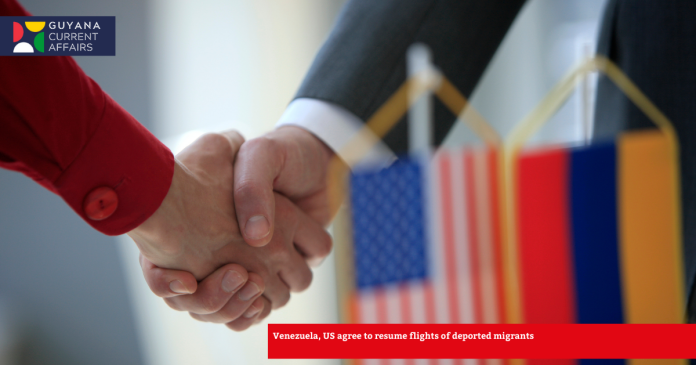Venezuela and the United States have reached an agreement to resume flights for migrants deported from the U.S. This decision was announced by senior U.S. diplomat Richard Grenell, who stated that the flights would commence on Friday, March 15, 2025. The agreement marks a notable collaboration between the two nations, which have had strained relations in recent years.
Background of the Agreement
The resumption of deportation flights follows a series of diplomatic engagements between the U.S. and Venezuela. In late January 2025, Grenell traveled to Caracas as a representative of U.S. President Donald Trump to meet with Venezuelan President Nicolás Maduro. This meeting led to the release of several Americans detained in Venezuela and the initiation of repatriation flights.
Significance of the Flights
The flights are part of a broader effort by the Trump administration to increase deportations of undocumented migrants. Venezuelans have been a significant group among those attempting to enter the U.S., largely due to the ongoing economic and political crisis in Venezuela. The resumption of these flights indicates a rare instance of cooperation between Washington and Caracas, despite their differing political stances.
Recent Developments
The agreement to resume flights comes despite recent tensions between the two countries. The U.S. had revoked a permit allowing Chevron to operate in Venezuela, a move that was seen as a potential obstacle to the continuation of deportation flights. However, Grenell’s announcement suggests that these flights will proceed as planned.
Impact on Venezuelan Migrants
The removal of Temporary Protected Status (TPS) for many Venezuelan migrants in the U.S. has left them vulnerable to deportation. The TPS program allows migrants to seek refuge in the U.S. due to conditions in their home country that prevent safe return. With the program’s termination, thousands of Venezuelans face the possibility of being deported back to Venezuela.
Community Response
The resumption of deportation flights has been met with mixed reactions. While the Trump administration views this as a success in its immigration policy, many advocacy groups and individuals have expressed concern about the safety and well-being of those being deported back to Venezuela.
Conclusion
The agreement between Venezuela and the U.S. to resume deportation flights highlights the complex dynamics at play in their bilateral relations. As these flights continue, they will be closely watched by both governments and international observers, reflecting broader trends in U.S. immigration policy and Venezuela’s ongoing economic challenges.


